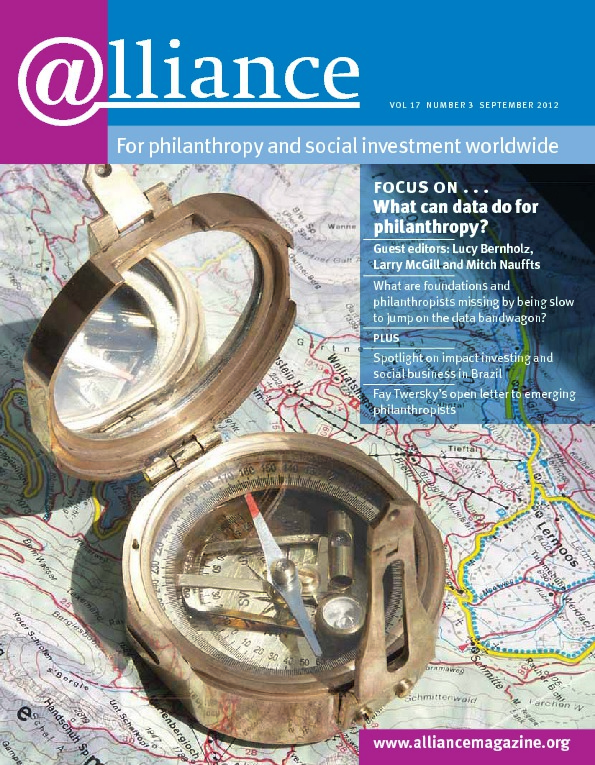Despite tightening climate regulations, the capital markets are becoming more fossil fuel intense, not less, with large fossil fuel companies raising big money on the world’s leading stock exchanges during the decade from 2000. The amount of carbon in the world’s proven fossil fuel stocks is some 2,795 gigatons – five times more than climate scientists say we can safely burn. Yet the owners of those stocks are already borrowing money and paying dividends on the basis of the 2,795 figure. Carbon Tracker was set up in 2010 to produce the data that uncovered this situation.
 Three years earlier a paper by Nick Robins and Mark Campanale for the Quality of Life Commission’s website suggested that the markets had already financed more coal and oil than could safely be burned. But to turn this theory into robust data required analysis. The first task was to evaluate the balance sheets of some 200 of the world’s largest listed coal, gas and oil companies to look at their reserves – and then convert this data into CO2 emissions potential. This was an obvious piece of data analysis, but it hadn’t been done before.
Three years earlier a paper by Nick Robins and Mark Campanale for the Quality of Life Commission’s website suggested that the markets had already financed more coal and oil than could safely be burned. But to turn this theory into robust data required analysis. The first task was to evaluate the balance sheets of some 200 of the world’s largest listed coal, gas and oil companies to look at their reserves – and then convert this data into CO2 emissions potential. This was an obvious piece of data analysis, but it hadn’t been done before.
Based on this, the 2011 ‘Carbon Bubble report’ exposed the misalignment between the world’s stock exchanges and the climate change agenda.[1] In essence, the levels of coal, oil and gas reserves being financed by the capital markets – including investors like foundations and endowments – are taking us to 6 degrees of warming rather than the 2 degrees target the world’s governments have agreed. The 2,795 gigatons they hold is five times higher than the 565 gigatons which is the remaining ‘carbon budget’ climate scientists say we have left to burn to stay below 2 degrees warming. This misalignment has been a wake-up call for the climate change community. Rather than counting last year’s flows of carbon emissions, which have already gone into the atmosphere, we need to look at the stocks of carbon being built up.
As a recent article in Rolling Stone magazine has pointed out, though ‘this coal and gas and oil is still technically in the soil … it’s already economically above ground – it’s figured into share prices, companies are borrowing money against it, nations are basing their budgets on the presumed returns from their patrimony. It explains why the big fossil-fuel companies have fought so hard to prevent the regulation of carbon dioxide … If you told Exxon or Lukoil that, in order to avoid wrecking the climate, they couldn’t pump out their reserves, the value of their companies would plummet.’[2]
The paradox is that fossil fuel company valuations are counting on future revenue streams to pay debts and dividends, but these revenue streams are dependent on the world continuing on a pathway to 6 degrees of warming. The market does not currently factor this into its financial models; the data it provides are based on a business-as-usual scenario. The Carbon Tracker Initiative is using its findings to challenge the assumptions underlying the current financial data. Producing an alternative analysis based on a carbon-constrained world is one way of influencing the data flow that allocates capital. ‘The regular process of economic evolution is that businesses are left with stranded assets all the time,’ says Nick Robins, who runs HSBC’s Climate Change Centre. ‘Think of film cameras, or typewriters. The question is not whether this will happen. It will. Pension systems have been hit by the dot-com and credit crunch. They’ll be hit by this.’
Given the threats to capital markets stability as well as to climate stability, Christiana Figueres, the UN head of climate, has called for more active valuations of companies which factor in climate change risk.[3] The markets haven’t spotted the problem yet – but with some 20-30 per cent of the global value of equity markets based on an assumption that all the fossil fuel financed will get sold, how much of your investment portfolio is based on climate-literate data?
The next phase of work for Carbon Tracker is to challenge the way in which regulators govern the disclosure of the fossil fuel intensity of the capital markets (they currently don’t); the way accountants treat the reserves of fossil fuel companies that can’t be burned (what ‘haircut’ to valuations is required to get all listed companies into a 2 degrees balance?); and the way the banks calculate the valuations of the companies they make investment recommendations on (should the banks be changing their financial models?). This is the next set of questions that Carbon Tracker hopes to find answers for.
1 http://www.carbontracker.org/carbonbubble
2 http://www.rollingstone.com/politics/news/global-warmings-terrifying-new-math-20120719
3 http://www.guardian.co.uk/environment/2011/oct/10/climate-change-cost-companies-worth
James Leaton is project director at Carbon Tracker. Email jleaton@carbontracker.org.
Mark Campanale is a director of Carbon Tracker. Email mark@campanale.co.uk.
For more information
http://www.carbontracker.org




Comments (0)